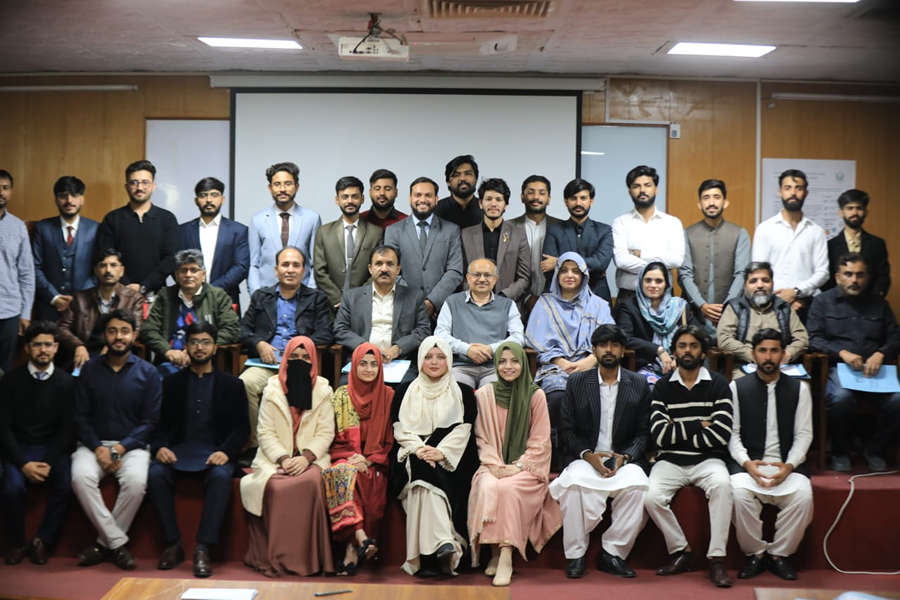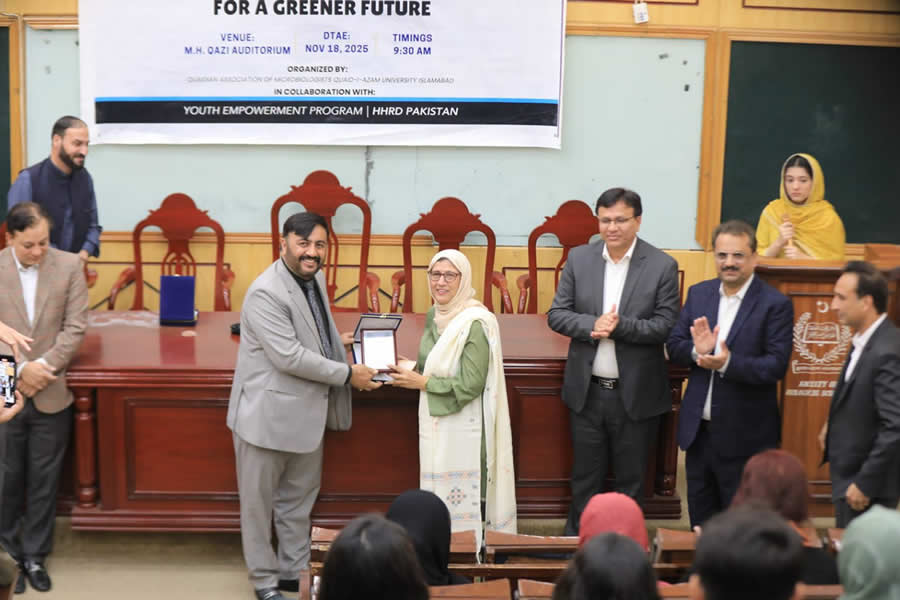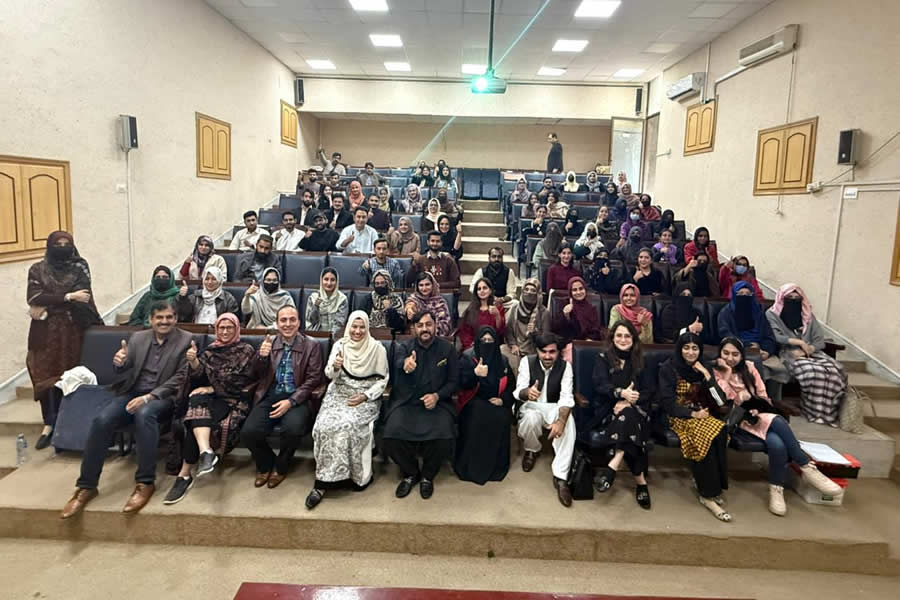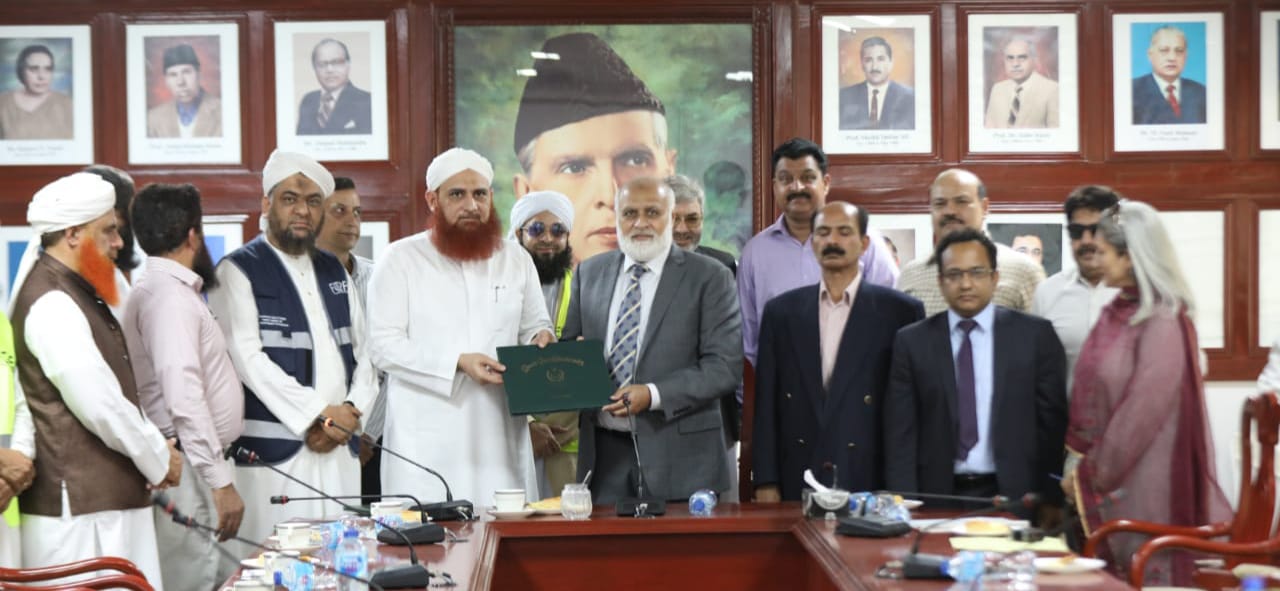Exploring Central Asia – A Lecture by Ambassador of Turkmenistan
All member countries are likely to finalize modalities soon for multi-billion Turkmenistan-Afghanistan-Pakistan-India (TAPI) natural gas project that would serve as energy lifeline across Central and South Asia. This was stated by Sapr Berdiniyazov, Ambassador of Turkmenistan, while delivering a lecture on “Socio-Economic and Cultural Development of Turkmenistan” here at Quaid-i-Azam University (QAU).
The lecture was jointly organized by Society of Asian Civilizations and Department of History, QAU. The Ambassador said that different technical agreements for user, buyer, and transistor are at the final stage while modalities to establish a consortium are being negotiated to construct the energy lifeline across Central and South Asia.
Sapr Berdiniyazov said being one of the major energy exporters Turkmenistan is exporting its oil, gas and electricity to Russian Federation, Ukraine, Iran, Afghanistan and Turkey through existing pipelines. He said the bilateral economic relations of Pakistan and Turkmenistan focus on realization of the TAPI gas pipeline project. “The 1,735 km long TAPI gas pipeline is expected to transport Turkmen natural gas in the volume of 30 billion cubic meters annually,” he said.
The construction of this gas pipeline will address the critical, social and humanitarian issues such as creation of new jobs, development of social infrastructure along the pipeline route and more important to maintain and enhance political stability in the region.
According to data the multi-billion gas pipeline project will generate 12,000 jobs in Afghanistan besides providing annual transit fees. The pipeline is 1735 km long and will be laid from Turkmenistan to Multan ending at Indian city of Fazilka. It is expected that the pipeline will be constructed by 2014 and it will route through south Yolotan gas field of Turkmenistan to Harat, Kandhar, Chaman, Quetta, Multan and Northern Indian city Fazilka.
He said Pakistan and Turkmenistan are seats of original cultures and centers of world’s earliest civilizations and close identity of views and mutuality of interests remains the hallmark of the ties between two countries.
He said since independence in 1991 Turkmenistan made considerable progress in various sectors such as modern fuel-energy industry, processing and textile industry, construction industry, agricultural, transportation and field of communicatio.
Throughout number of years Turkmenistan is included into the category of the states with the highest indicators of the economic growth. The average annual growth of the gross national product since 2000 amounts to 8-10%. According to International Monetary Fund (IMF) forecasts, in 2011 this indicator will amount to 9%.
Turkmenistan has adopted the policy of providing its population with essential necessities of life such as gas, electricity, water, education and medical services absolutely free of cost. According to an official data over 75% of the state budget is allocated to provide maximum relief to the people and implement the other social sector programmes. Chairperson, Department of History, Dr. Razia Sultana, Dr. Zulfiqar ali QureshiPresident Society of Asian Civilizations, and a large number of faculty members and students attended the interactive session.
 Admissions (Spring-2026) – Click here to Apply!
Admissions (Spring-2026) – Click here to Apply!








